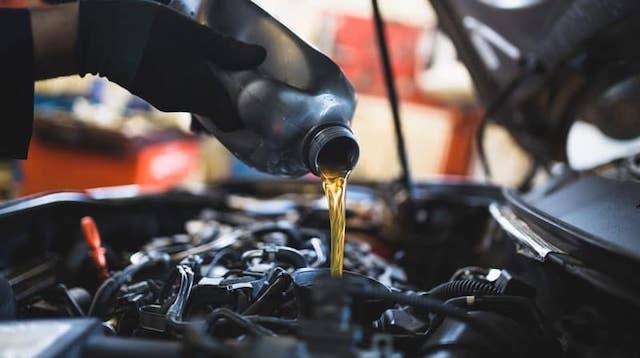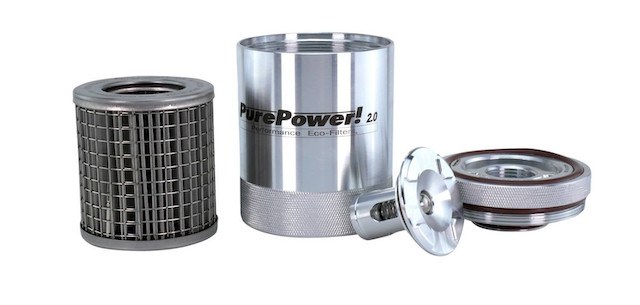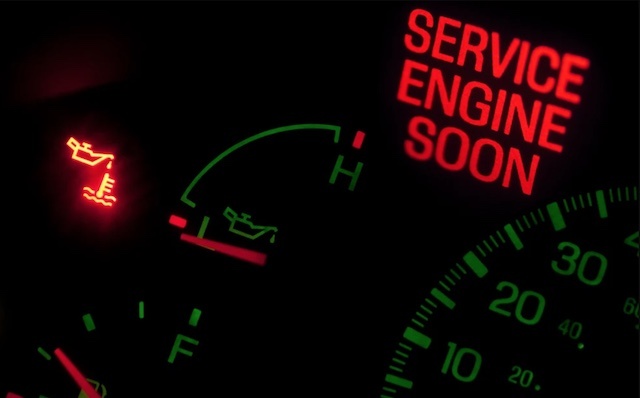How To Increase Oil Pressure
Is your vehicle’s oil pressure too low? There are several things you can do to increase your vehicle’s oil pressure. Read on to find out how.
Why You Don’t Want Your Oil Pressure To Be Too Low
If your vehicle’s oil pressure is too low, it’s very likely that your engine isn’t getting enough oil. When that happens, your engine isn’t getting enough lubrication. That leads to some pretty serious engine problems.
Proper lubrication is critical to the health of the engine. Without it, serious problems can happen:
- Friction can build up which can lead to overheating. This increases the risk of cracking the engine block or blowing out the head gasket.
- Critical moving parts such as bearings and cylinder walls may not get enough oil. This can cause them to wear out much more quickly than they should. Or, worse yet, sieze.
These scenarios can be very costly. They should be resolved through repairs or improvements as soon as possible. So what can you do to improve your oil pressure? Read on.
1. Change Your Oil

Sometimes the problem is as simple as oil that’s too dirty. When your vehicle is running on dirty oil, the engine isn’t getting enough lubrication. This results in the oil pressure dropping, and the oil pump having to work harder.
This is the main cause of low engine oil pressure. Many drivers forget or neglect to change their engine oil. Check your oil and see if it’s too dirty.
If your oil still looks clean, there’s a chance your engine isn’t running on the right kind of oil. Oil differs in viscosity. If you use a type of oil that is not correct for the engine, it can affect the oil pressure. If you replace the dirty or incorrect oil with fresh oil that is correct for your engine, you may see a significant change in oil pressure while driving.
2. Upgrade To A Lifetime Oil Filter

The oil filter plays a key role in maintaining oil pressure. When a filter becomes clogged, it reduces oil flow to the engine. Disposable oil filters start clogging pretty quickly. If you want to keep the oil pressure optimal at all times, get a lifetime oil filter.
A lifetime oil filter is a reusable oil filter made out of high quality stainless steel and aluminum. It keeps the oil clean and the oil flow optimal. A quality lifetime oil filter does a better job at filtering the oil than a disposable oil filter. This helps keep the oil pressure up. We sell high quality lifetime oil filters. Some of our customers have reported an increase in oil pressure after upgrading to our lifetime oil filters.
3. Clean Out The Oil Pan
If your vehicle is older with high mileage, there may be some impurities sitting in your oil pan. Some of the most common impurities we’ve seen in oil pans include:
- Sludge
- Metal shavings
When you change the oil, the fresh oil runs through the pan and picks up these impurities. That means the fresh oil will get dirty much faster. If you see a drop in oil pressure well before your next oil change, clean out the oil pan.
4. Check The Oil Pump
Some engines have an externally mounted oil pump that can be easily removed for inspection. Others have oil pumps that are mounted inside the engine, and are very time consuming to access. In either case, the oil pump usually doesn’t cause problems until the vehicle is past 100,000 miles.
If you suspect the oil pump and can easily remove it, check for signs of wear and metal shavings. Also, measure clearance between the pump lobes and the body of the pump. (Some pumps use gears rather than lobes. You can also measure clearance between the gear teeth.)
5. Check The Engine

There could be a mechanical problem that cannot be solved with a simple fix. Sometimes engine bearings or other components become worn enough that the excess clearance causes low oil pressure. If you think this might be the cause, but aren’t sure, an oil analysis is an inexpensive first step towards diagnosing the problem. An oil analysis report will tell you what kind and how much of different metals are in the oil. That can tell you if you have serious problems or not.
Make Sure The Increase In Oil Pressure Isn’t A Result Of Any Issues
There are several great benefits that come with increased oil pressure. You still need to be careful, though. Sometimes a random spike in oil pressure can mean that there’s an issue within your engine. A clogged oil passageway can cause an increase in oil pressure seen at the gauge. Unfortunately, this also means that part of the engine isn’t getting enough oil.
If your vehicle’s oil pressure increases after you’ve done something to boost it, then everything is likely OK. But if your oil pressure increases after no action on your part, you may want to check your engine for any issues.
